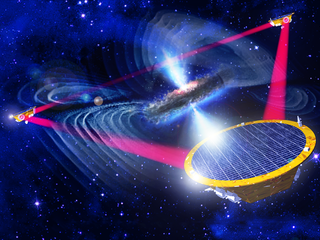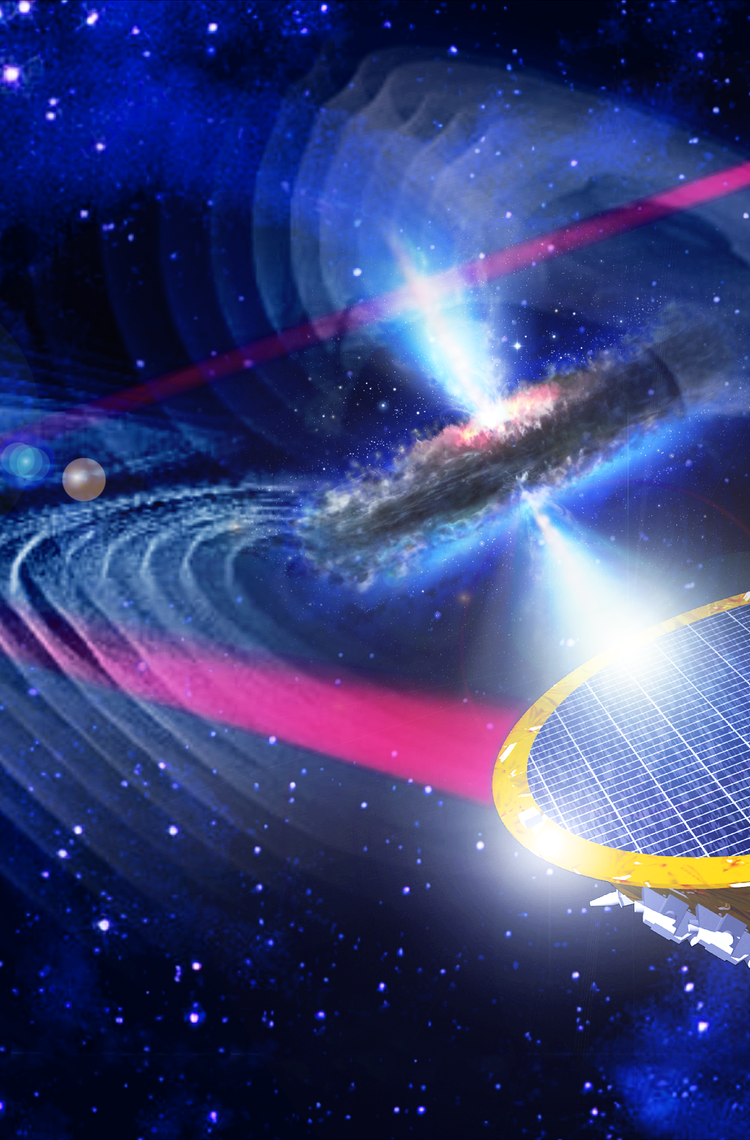Friedrichshafen, 19 May 2022 - Airbus has been awarded a contract from the European Space Agency (ESA) to further develop the implementation of LISA (Laser Interferometer Space Antenna), one of the most ambitious science missions ESA has planned to date. With Phase B1 now underway, the detailed mission design and final technology development activities for the gravitational wave observatory are due to be completed by 2024, with launch planned for the late 2030s.
Gravitational waves were first postulated by Albert Einstein. They are distortions in space-time, created when for example supermassive black holes - billions of times heavier than our sun - merge. These events are so powerful that the resulting gravitational waves can be measured by sensitive instruments from billions of light years away.
To measure these waves, LISA consists of three spacecraft that form an equilateral triangle deep in space, 2.5 million kilometres apart from each other. Gravitational waves stretch and compress space-time, causing the tiniest changes in distance between the LISA probes (less than the diameter of an atom). Any movements of test masses that free-fall inside the three spacecraft when a gravitational wave passes can be detected by the spacecrafts’ sensitive instruments. LISA will do this by using lasers that continuously transmit back and forth between the satellites using interferometry, measuring the distance between each of the test masses.
Some of the key technologies required for LISA were successfully tested in space with the LISA Pathfinder (LPF) mission developed and built by Airbus as prime. The mission results showed that LPF operated even more precisely than required for LISA. LPF was launched on 3rd December 2015 and ended in July 2017.
Gravitational waves are a new research method that uses gravity instead of light to measure dynamic processes in the universe. The study of gravitational waves offers enormous potential for discovering parts of the universe that are invisible in other ways. LISA will significantly expand our knowledge of the beginning, evolution, and structure of our universe. Gravitational waves have been detected by ground-based observatories in recent years – by experiments such as LIGO and the European Virgo observatory – but these facilities are limited in size and sensitivity, meaning that they are only able to detect high-frequency gravitational waves from particular sources (such as merging stellar-mass black holes and neutron stars).
@AirbusSpace @esascience #LISA #GravitationalWaves #NextSpace
Translations and assets
Download
Documents
Communiqué de presse
Nota de prensa
Presse Information
Press Release

Artist view: LISA space observatory
Documents
Communiqué de presse
Nota de prensa
Presse Information
Press Release

Artist view: LISA space observatory
Your media contacts
Contact us
Ralph Heinrich
AIRBUS | Defence and Space
Jeremy Close
AIRBUS | Defence and Space
Francisco Lechón
External Communications - Airbus Space Systems, Spain
Guilhem Boltz
AIRBUS | Defence and Space
Mathias Pikelj
Communications - Airbus Defence & Space
